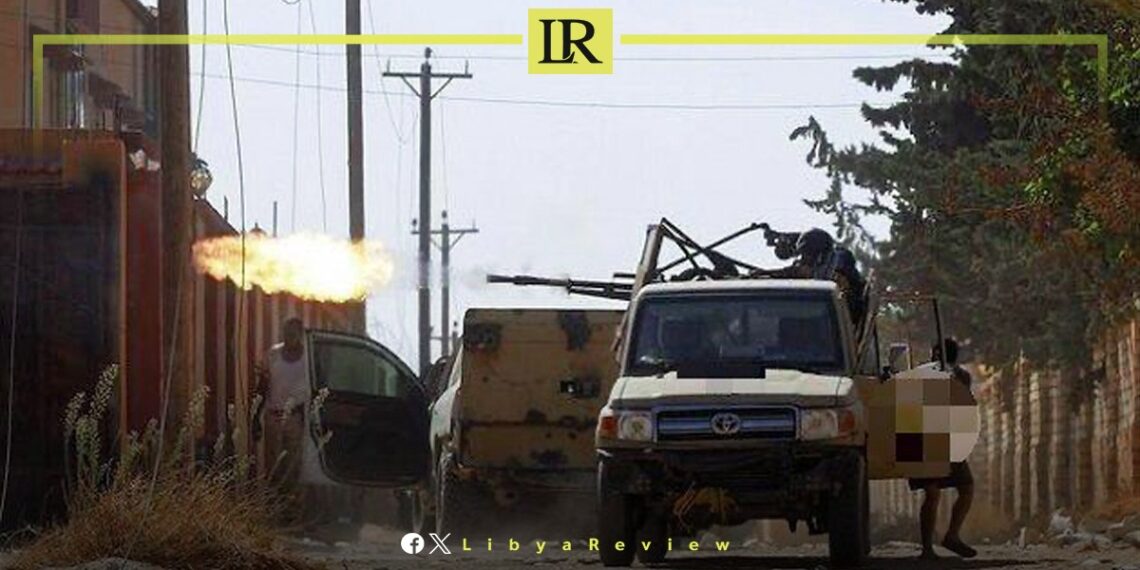Local media reports and eyewitnesses indicated a surge in violence in Surman city, situated about 60 kilometers west of Libya’s capital, Tripoli.
The city has become a battleground for intermittent clashes involving both medium and heavy weaponry as rival armed groups vie for control, sparking sudden disputes and raising security tensions within the community. The Misrata Security Directorate has yet to issue a statement regarding the unfolding situation.
The conflict in Surman coincides with reports of heavy gunfire in central Tripoli, particularly near the airport road, intensifying concerns among residents.
The situation has led to the evacuation of popular recreational spots along Omar Mukhtar Street, as families seeking to celebrate the second day of Eid al-Fitr were forced to retreat amidst fears of escalating violence.
These incidents underscore the precarious security situation in Libya, a country still struggling to find stability after years of civil conflict and political fragmentation.
The clashes in Surman and the panic among Tripoli’s populace during a traditionally joyous occasion highlight the deep-seated challenges Libya faces in achieving lasting peace and cohesion. As the international community watches closely, the urgency for a comprehensive and enduring resolution to Libya’s multifaceted crisis becomes ever more apparent.
Libya has witnessed a troubling surge in armed conflicts among militias across its western regions throughout 2023, exacerbating the nation’s long-standing crisis, and hampering efforts toward democratic transition. These conflicts, which have been a continuous struggle for power and influence, have resulted in numerous civilian casualties, and significant destruction of both public and private properties.
The Libyan people and the international community have grown increasingly concerned, as these recurrent skirmishes threaten the stability brought about by the ceasefire agreement signed in October 2020. Moreover, the ongoing violence has disrupted public life and negatively influenced the country’s political trajectory, including the crucial process of conducting national elections.


